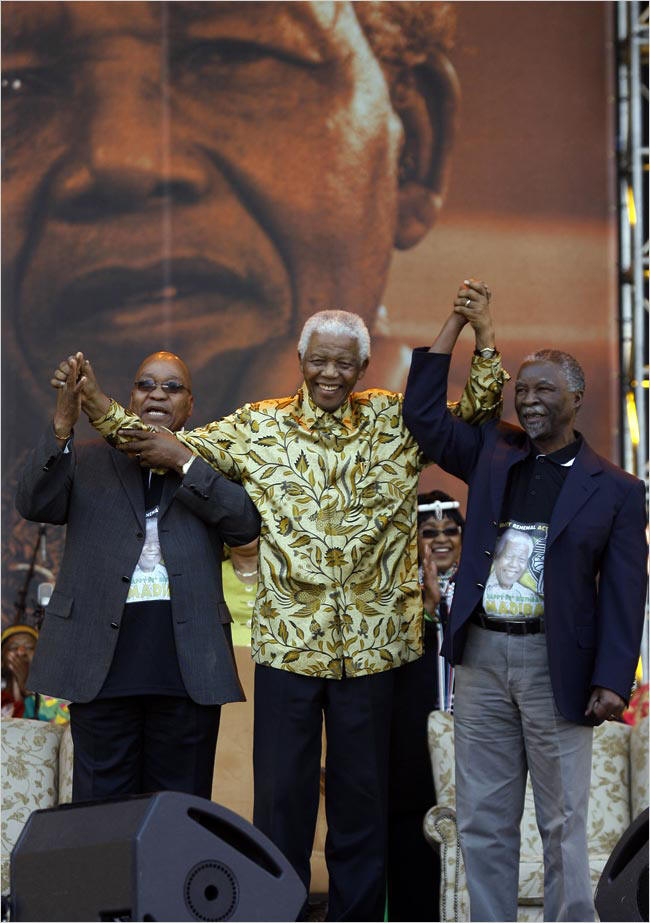| Want to send this page or a link to a friend? Click on mail at the top of this window. |
| More Books and Arts |
| Posted December 28, 2008 |
| Early American Echoes in South Africa? | |
|
|
|
 |
|
| JEROME DELAY/ASSOCIATED PRESS | |
| APPEARANCES ARE DECEIVING Jacob Zuma, left, and Thabo Mbeki, right, celebrate the birthday of Nelson Mandela shortly before Mr. Zuma's supporters forced out Mr. Mbeki as South Africa's president. |
| By DONALD G. McNEIL Jr. |
| Wehaitians.com, the scholarly journal of democracy and human rights |
| More from wehaitians.com |